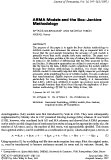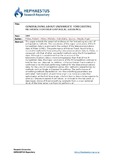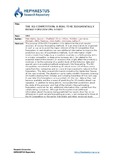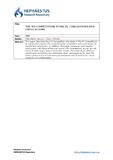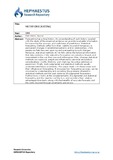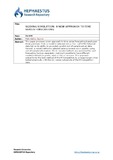Browsing by Subject "M-Competition"
Now showing items 1-6 of 6
-
ARMA Models and the Box–Jenkins Methodology
(John Wiley & Sons, Ltd., 1997-05)The purpose of this paper is to apply the Box–Jenkins methodology to ARIMA models and determine the reasons why in empirical tests it is found that the post-sample forecasting the accuracy of such models is generally worse ...
-
Generalising about univariate forecasting methods: further empirical evidence
(Elsevier, 1998)This paper extends the empirical evidence on the forecasting accuracy of extrapolative methods. The robustness of the major conclusions of the M-Competition data is examined in the context of the telecommunications data ...
-
The M2-competition: A real-time judgmentally based forecasting study
(Elsevier, 1993)The purpose of the M2-Competition is to determine the post sample accuracy of various forecasting methods. It is an empirical study organized in such a way as to avoid the major criticism of the M-Competition that forecasters ...
-
The M3-Competition: results, conclusions and implications
(Elsevier, 2000)This paper describes the M3-Competition, the latest of the M-Competitions. It explains the reasons for conducting the competition and summarizes its results and conclusions. In addition, the paper compares such results / ...
-
Metaforecasting: Ways of improving forecasting accuracy and usefulness
(Elsevier, 1988)Forecasting has a long history. An understanding of such history coupled with the study of the empirical evidence can provide invaluable information for improving the accuracy and usefulness of predictions. Statistical ...
-
Sliding simulation: a new approach to time series forecasting
(Institute for Operations Research and the Management Sciences, 1990-04)This paper proposes a new approach to time series forecasting based upon three premises. First, a model is selected not by how well it fits historical data but on its ability to accurately predict out-of-sample actual data. ...

